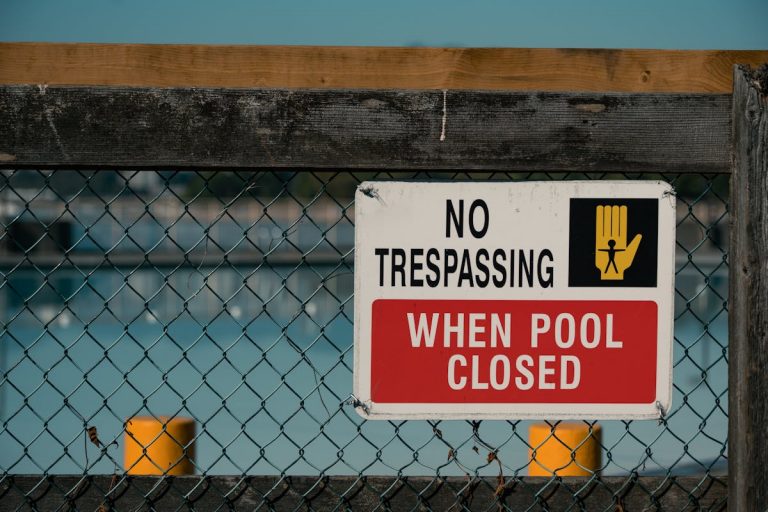In the intricate landscape of gambling regulations, Arizona stands out with its unique set of rules and restrictions. This state has a diverse mix of sanctioned gambling activities, such as Native American casinos and sports betting which was recently legalized in 2021. However, online gambling remains a gray area, with severe penalties for those who cross the line. To navigate these complexities, it is essential to comprehend the intricate framework of Arizona’s gambling laws. In the following discussion, we will explore these intriguing regulations and their implications for both operators and participants.
History of Gambling in Arizona
In the heart of the American Southwest, the history of gambling in Arizona is a tale as old as the state itself. The progression of gambling in the state is marked by significant gambling milestones and impacted by various historical legislation.
The first notable milestone occurred in the 1800s during the gold rush, when saloons and gambling houses became widespread. Even after Arizona attained statehood in 1912, these establishments remained popular until the 1950s, when a statewide crackdown led to the closure of many casinos.
The Arizona State Lottery, established in 1980, marked another significant milestone. This was a result of the passage of the Arizona State Lottery Act of 1980, a key piece of historical legislation that allowed the state to regulate and profit from lottery games.
A third major milestone was the passage of the Indian Gaming Regulatory Act (IGRA) in 1988 at the federal level. This law allowed federally recognized tribes to operate casinos on their reservations, paving the way for the thriving tribal casino industry in Arizona today.
Thus, Arizona’s gambling history is a vivid narrative of adaptation to changing laws and societal attitudes.
Understanding Arizona’s Gambling Laws
Maneuvering Arizona’s gambling laws requires a clear understanding of several key aspects, including the state’s legal gambling age, the types of gambling that are authorized, and the penalties imposed for illegal gambling activities. Each of these elements has its own implications and nuances, contributing to an extensive framework that governs all gambling activities within the state. In the following sections, we will methodically examine each of these components, providing a detailed and authoritative guide to understanding Arizona’s gambling laws.
Arizona’s Legal Gambling Age
A significant segment of Arizona’s gambling regulations revolves around the legal gambling age. These rules are set in place to curb youth gambling and guarantee that only individuals of a certain age can partake in various forms of gambling.
Arizona law stipulates that the legal age for gambling is 21. This means that anyone under this age is prohibited from participating in any gambling activity. The law is rigorous in its implementation, requiring stringent age verification processes at all gambling establishments, including casinos and online betting platforms. These measures are designed to deter under-aged individuals from accessing gambling services and to protect them from the potential dangers associated with gambling.
In the event of a violation, both the gambling operator and the under-aged participant may face severe penalties. This underscores the seriousness with which Arizona treats the issue of youth gambling. By maintaining a strict legal gambling age, Arizona aims to promote responsible gambling and safeguard its citizens, particularly the youth, from the potential risks of gambling addiction. It’s imperative for both residents and visitors to abide by these regulations to avoid legal repercussions.
Types of Authorized Gambling
Understanding Arizona’s gambling laws reveals a wide spectrum of authorized gambling activities across the state. These activities, regulated by the Arizona Department of Gaming, range from Native American casinos to local Bingo halls.
Native American casinos are a significant part of Arizona’s gambling landscape. The state has 22 federally recognized tribes, many of which operate casinos on their reservations. These casinos offer a variety of gaming options, including slot machines, poker, and other table games.
Charitable gaming is another authorized form of gambling, which includes Bingo halls and Raffles events. These activities, typically organized by non-profit organizations, are allowed under certain conditions outlined in the state’s gambling laws. Bingo halls, often found in community centers and churches, provide a social setting for this popular game. Meanwhile, Raffles events are common at charity fundraisers, offering participants a chance to win prizes while supporting a good cause.
Arizona also allows card rooms, which host games like poker. However, these establishments must adhere to strict regulations to guarantee fair and legal gaming. These diverse types of authorized gambling contribute to Arizona’s complex and dynamic gambling scene.
Penalties for Illegal Gambling
Despite the diverse landscape of authorized gambling activities in Arizona, engaging in illegal gambling can result in serious legal consequences. The state’s gambling enforcement agencies are vigilant in identifying and penalizing illegal gaming operations.
Under Arizona law, illegal gambling is classified as a Class 1 misdemeanor. This carries a maximum penalty of six months in jail, a fine of $2,500, or both. Further, any property or money used in illegal gambling can be seized by the state. This includes any proceeds derived from such activities.
If a person is found guilty of promoting illegal gambling, which involves managing, supervising, or financing illegal gaming activities, the crime is elevated to a Class 5 felony. Convicted individuals can face between six months to two and a half years in prison, along with a maximum fine of $150,000.
In addition to these penalties, Arizona law also provides for the forfeiture of any instruments or proceeds of illegal gambling to the state. Consequently, engaging in illegal gambling can lead to substantial personal and financial losses. It is imperative for individuals to understand and adhere to the state’s gambling laws to avoid these penalties.
Types of Legal Gambling
In the context of Arizona’s gambling landscape, three main areas emerge as legal avenues for wagering: casino gambling, the state lottery, and sports betting. Each of these sectors operates under unique regulations that dictate the rules of engagement. In order to fully understand the legalities surrounding gambling in Arizona, it is critical to examine these components individually and in detail.
Arizona’s Casino Gambling
What types of gambling are permitted within the borders of Arizona? Arizona’s gambling laws permit several types of gambling, with casino gambling being a vital component. The state hosts a plethora of Native American casinos, which are permitted under federal law. These casinos offer a wide array of games, including slots, poker, blackjack, and bingo.
Native American casinos have not only become a popular destination for locals, but they have also greatly contributed to Arizona’s gambling tourism. Tourists from all over the globe flock to these casinos to experience the unique combination of traditional Native American culture and modern gaming facilities. These casinos are regulated by the Arizona Department of Gaming, ensuring fair play and integrity in all games.
The state also allows off-track betting on horse and greyhound racing, along with social gambling, such as charity casino nights, raffles, and bingo games. However, it is important to highlight that all forms of internet gambling are strictly prohibited within the state.

Lottery Regulations in Arizona
A substantial number of Arizona residents participate in the state’s lottery, another form of legal gambling. Governed by the Arizona Lottery Commission, this form of gambling encompasses various lottery types, each with its own set of rules, regulations, and potential lottery prizes.
The most popular lottery types in Arizona include the Pick 3, Fantasy 5, Pick 5, and the multi-state games Powerball and Mega Millions. Each game has different ticket costs, odds of winning, and prize structures. For instance, with Pick 3, players select three numbers from 0-9 and can win up to $500. The Powerball and Mega Millions, on the other hand, can offer jackpot prizes in the hundreds of millions, depending on ticket sales and previous jackpots.
It is important to note that all Arizona lottery winners are subject to both federal and state taxes. Additionally, the state lottery commission is tasked with ensuring the integrity of the games, safeguarding players’ rights, and promoting responsible play. Evidence of this is seen in the strict regulations in place to prevent underage gambling, with the legal age to purchase lottery tickets in Arizona being 21.
Sports Betting Laws
For those who prefer wagering on sports events, the law in Arizona permits this type of gambling as well. This legalization reflects the growing sports betting trends across the United States, with Arizona being no exception. The law, signed into effect on April 15, 2021, allows professional sports organizations to apply for licenses to operate their own betting platforms.
In terms of regulation, the Arizona Department of Gaming oversees and enforces the rules, ensuring all betting platforms adhere to the stipulated standards and regulations. The law allows both in-person and online sports betting. For online betting, bettors can use their preferred licensed betting platforms, offering them the convenience of placing bets from their homes or any place within the state’s boundary. Additionally, the law permits wagering on professional and collegiate sports events, but wagering on high school sporting events is prohibited.
Restrictions on Gambling Activities
In the myriad world of gambling, Arizona imposes certain restrictions on gambling activities to maintain a balance between entertainment and potential harm. The state’s gambling enforcement authorities are vigilant in ensuring compliance with these laws, and their dedication is evident in the strict implementation of rules and regulations.
The restricted activities encompass a wide range of gambling forms. For instance, illegal gambling houses are strictly prohibited. The state does not permit any unregulated and unlicensed gambling activities. This includes online casinos operating without permission from the Arizona Department of Gaming. Moreover, unregulated sports betting, which isn’t overseen by the state, is also restricted.
Additionally, the use of gambling devices outside of authorized venues, such as tribal casinos or authorized racetracks, is considered illegal. It is essential to note that any gambling activity which does not comply with the state’s regulations can lead to severe legal consequences, including fines and imprisonment.
Age Requirements for Gambling
Understanding the age requirements for gambling in Arizona is essential for anyone looking to partake in such activities within the state. The legal gambling age in Arizona is 21 years old. This age limit applies to all forms of gambling, whether it be at a physical casino, horse or dog track, or participating in the state lottery.
Youth gambling, despite being illegal, is a concern that needs to be addressed. The propensity towards gambling can often start at a young age, particularly with the advent of digital platforms that blur the lines between gaming and gambling. This has led to an increasing need for gambling education among the youth.
The state of Arizona has recognized this issue and has implemented programs to educate young people about the potential dangers of gambling. These programs aim to prevent underage gambling, promote responsible gambling among legal adults, and provide resources for those who may be struggling with a gambling problem. It is vital for these education programs to be continually updated and improved to effectively address the evolving landscape of gambling.
Online Gambling Regulations
While the age requirements for gambling in Arizona, as well as education around the subject, are clear-cut, the state’s stance on online gambling regulations presents a more complex picture. Currently, the state does not have any explicit laws permitting or prohibiting online gambling, leading to a grey area where the legality of this activity is not outright defined.
However, Arizona’s laws do indirectly address some forms of online gambling. The state strictly forbids online poker, and anyone found participating in this activity can face serious penalties. This prohibition extends to all forms of online poker, irrespective of whether the game is organized within or outside the state.
On the other hand, fantasy sports, a type of online gambling that is based on the statistical performance of real-world athletes, are permitted in Arizona. This is because the state’s law considers fantasy sports as games of skill rather than games of chance, which differentiates them from traditional forms of gambling. Consequently, it is legally safe for Arizonians to participate in fantasy sports.
While these regulations provide some clarity, the lack of explicit laws addressing online gambling as a whole creates a level of uncertainty that players must navigate.
Penalties for Illegal Gambling
The consequences of engaging in illegal gambling activities in Arizona are severe and clearly outlined by the state’s laws. Violators can face criminal charges, hefty fines, and potential imprisonment. These illegal gambling consequences are not only punitive but also act as a deterrent to guarantee the integrity of authorized gambling practices within the state.
Arizona’s enforcement agencies, including the Department of Gaming and local police, are vigilant in their efforts to identify and prosecute illegal gambling operations. These agencies, armed with state law, have the authority to seize illegal gambling devices and shut down unlicensed operations. They also collaborate with federal agencies to guarantee adherence to both state and national laws.
Moreover, individuals involved in illegal gambling may face additional consequences beyond legal penalties. For example, involvement in illegal gambling can lead to a criminal record, which can impact future employment opportunities and personal reputation.
Frequently Asked Questions
Can I Host a Poker Night at My Home in Arizona?
Yes, you can host a poker night at your home in Arizona, as long as it adheres to the state’s poker regulations. These stipulate that no profit should be made from home games.
Are Winnings From Gambling Taxable in Arizona?
Yes, in Arizona, gambling winnings are considered taxable income. This includes winnings from casinos, lotteries, raffles, etc. It’s essential to understand the tax implications and the importance of accurate winnings reporting to avoid potential penalties.
Where Can I Seek Help for Gambling Addiction in Arizona?
In Arizona, individuals struggling with gambling addiction can seek support from numerous resources. Organizations like the Arizona Office of Problem Gambling and Gamblers Anonymous Arizona offer extensive services to help combat this issue effectively.
Are There Any Self-Exclusion Programs Available in Arizona?
Yes, Arizona offers self-exclusion options. These programs allow individuals to voluntarily ban themselves from gaming activities, providing essential support for those seeking to control their gambling habits and addressing gambling addiction.
Can I Gamble on Sports Events in Arizona?
Yes, sports betting options are available in Arizona. As of September 2021, individuals can legally place wagers on sports events through a variety of licensed, legal betting sites and physical sportsbook locations in the state.





